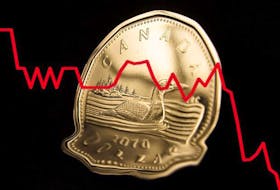On the surface, the Toronto Regional Real Estate Board reported what appears to be another stellar quarter for the condo market in the Greater Toronto Area.
Despite COVID-19’s presence, realtors sold 7,072 condos in the region, a 10.5 per cent increase in comparison to the third quarter of 2019. Average condo prices, meanwhile, enjoyed a 8.3 per cent bump to hit $633,484 in the quarter. Historically, this was the second-best third quarter ever for sales and the best for an average selling price.
But dig a little deeper and it becomes apparent that these figures mask underlying weakness in the market.
Although sales and prices are up, so too are listings. A total of 17,613 new condo listings were made in the quarter, up 84.6 per cent from the third quarter in 2019. Active listings, meanwhile, are currently more than double what they were this time last year.
When inventory begins to widely outpace sales, as was the case here, it signals a weakening market as supply is outstripping demand. The Financial Post reported last week that micro condos — units under 500 sq. ft. — had already entered a buyer’s market because of how much supply had already outweighed demand.
The shift, according to TRREB chief market analyst Jason Mercer, is being led by investors who are putting units up for sale on the market en masse.
“There may be some uncertainty over the economy and you’ve seen strong appreciation in the value of your asset on paper over time so you might say now may be the time to realize that appreciation in real terms,” said Mercer.
Both the traditional rental and short-term rental markets in Toronto are struggling in the midst of the pandemic. Students and new immigrants, two demographics who kept the traditional rental market flowing in downtown Toronto are no longer coming in waves. Immigration has drastically slowed due to COVID-19 and universities have moved their classes to virtual formats.
Both the traditional rental and short-term rental markets in Toronto are struggling in the midst of the pandemic
TRREB data shows the average one-bedroom condominium apartment rent fell 11.1 per cent in the quarter compared to the same period last year, while two-bedroom condominium apartment rent contracted by 9.2 per cent on average over the same time period.
With tourism no longer a factor, investors who once relied on the short-term rental market, such as AirBNB, have also seen cash flows decline to near-zero. And so the obvious solution for investors has been to cut costs, especially in a recession. When too many units hit the market at once and the buyers aren’t there to greet them, prices decline.
The reason why condo prices haven’t yet, as opposed to rent, is because historically, there’s usually a delay, Mercer said.
“Generally speaking, if you look back at periods of times where you start to see a change in sales growth relative to listing growth, it does take time to filter down to the marketplace,” he said.
The trajectory of COVID-19 will determine whether the higher inventory can eventually effect pricing, according to Mercer. A vaccine could bring back immigration and the demand there could be enough to convince investors to take their units off the market. In rapid fashion, the GTA could once again be in a market with shockingly little supply to match an rising demand.
Financial Post
• Email: [email protected] | Twitter: VicF77
Copyright Postmedia Network Inc., 2020








